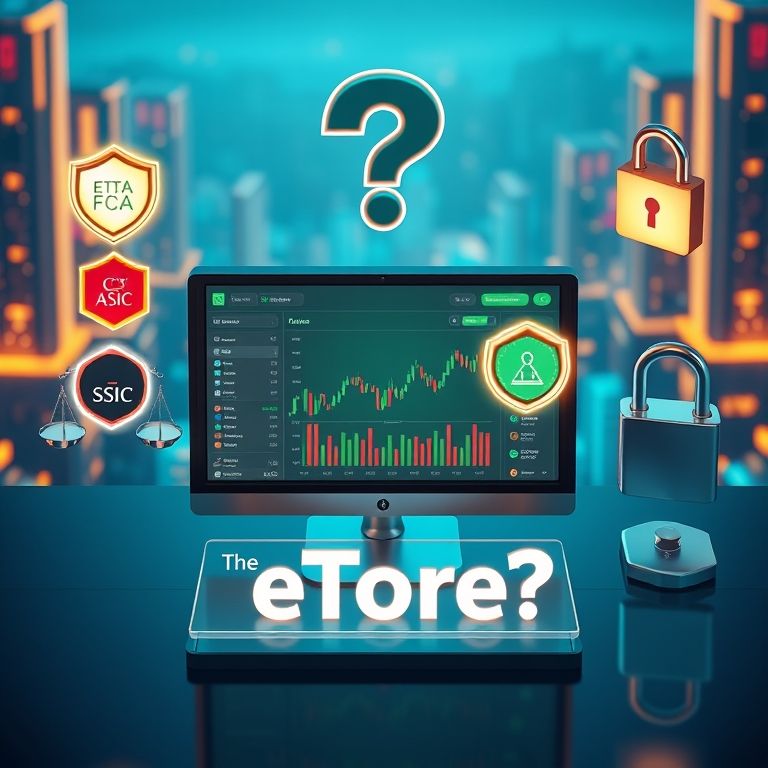Is eToro regulated by financial authorities?
Is eToro regulated by financial authorities?
Introduction
Over a coffee, I asked myself why I felt safer trading on certain platforms than others. The short answer isn’t just about shiny interfaces or big marketing claims—it hinges on regulation, fund protections, and how transparent a platform stays about risk. If you’re eyeing a mix of forex, stocks, crypto, indices, options, and commodities, you want a broker that’s overseen by real authorities. Here’s a grounded look at how eToro stacks up on regulation, what that means for everyday traders, and how to navigate the evolving world of web3 finance.

Regulatory landscape across major regions
- Multi-jurisdiction oversight: eToro operates through several entities that fall under different authorities. In Europe and the UK, parts of the platform are regulated by respected agencies (CySEC in Europe and the FCA in the UK), with the promise of capital and investor protections baked into the rules. In Australia, eToro’s local entity is overseen by ASIC. The US scene uses a different setup via a separate entity, with compliance handled under U.S. rules. In short, the same brand operates under multiple regulatory umbrellas depending on your country.
- What that means for you: regulation typically implies certain standards—transparent disclosures, client funds segregation, and dispute resolution channels. It also means you should verify which specific eToro entity you’re using, because protections and available products can differ by region.
Trading menu and what regulation covers
- A broad spectrum: forex, stocks, crypto, indices, options, and commodities are among the popular offerings. Regulation doesn’t guarantee profits, but it does shape what products you can access and how they’re priced, margin requirements, and how feedback/claims are handled.
- Practical effect for traders: regulated platforms are more likely to publish clear risk notices, order execution policies, and track records of compliance. You’ll also see disclosures about how your funds are safeguarded and what protection schemes exist in your jurisdiction.
Leverage, risk, and reliability
- Leverage is region-specific: regulatory bodies set limits for retail traders, especially in volatile instruments like forex and CFDs. Expect caps and stricter risk controls in many regions, with some options available only to professional clients after a suitability assessment.
- Reliability tips: don’t rely on marketing hype alone. Look for real-time risk warnings, accessible revocation of use if needed, and easily verifiable channels for complaints. Pair that with your own risk limits (personal stop-loss tactics, diversification, and position sizing) to keep leverage in check.
Security, tools, and charting
- Security under regulation: regulated platforms typically implement two-factor authentication, encrypted data, and clear policies for data privacy and fund custody. eToro’s charting tools and social features are attractive, but you’ll want to enable security features, understand how funds are held, and know where to turn if you see anomalies.
- Charting and analysis: robust charting, copy-trading visibility, and transparent trade records help you validate performance and risk. The combination of regulation and good tools makes the decision to trade more grounded.
DeFi, Web3, and the road ahead
- DeFi vs CeFi: regulation is tightening around decentralized finance, which creates a tension between innovation and investor protection. Centralized platforms like eToro may integrate crypto offerings with more traditional compliance rails, while DeFi pushes the frontier with smart contracts and permissionless liquidity pools.
- Future trends: smart contract trading and AI-driven analytics are on the rise. Expect smarter risk controls, improved execution, and more automated strategies, but also new attack vectors and governance challenges. Regulation will likely continue to adapt, emphasizing custody, interoperability, and user protection.
Bottom line and practical takeaway
- Is eToro regulated by financial authorities? Yes, in key markets it operates under recognized regulators, with protections designed to meet regional standards. But always verify the exact entity you’re using and read the local disclosures.
- Pro tips for traders: confirm your country’s regulator, understand the protection schemes, use risk controls, and stay informed about evolving rules in web3 and DeFi. Pair a regulated platform with prudent risk management, solid chart analysis, and secure account practices.
Slogan
Trade with regulated confidence on a platform that blends traditional oversight with modern tools—Is eToro regulated by financial authorities? Answer you can feel good about, as you navigate forex, stocks, crypto, and beyond.
If you’re balancing curiosity with caution, you’re already on the right track. Regulation isn’t a guarantee of profit, but it’s a foundation that helps you trade with greater clarity, safety, and confidence.
YOU MAY ALSO LIKE